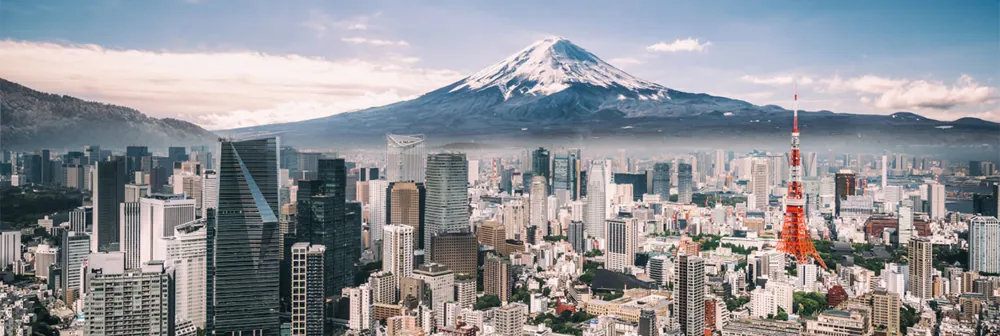International Focus: Tokyo, Japan
August 21, 2018


July/August 2018
More articles in this issue:
Japan, India Plan for the Future at Tokyo Tech Event
Officials from Japan and India convened at the Bengaluru Tokyo Technology Initiative event in April to discuss combining talent and preparing for a future defined by the Internet of Things. Policymakers and scholars looked at how Japan’s manufacturing expertise could be paired with India’s wealth of IT engineers.
AI Robot Nominated as Mayoral Candidate in Japan
A robot known as Michihito Matsuda is aiming to be the world’s first artificial intelligence (AI)-based mayor, after being nominated in Tama City, in Tokyo’s western district. Matsuda is proposing replacing public officials with AI, which will gather city data and propose “fair and balanced” opportunities for everyone. The campaign is being funded by Tetsuo Matsumoto, vice president of software provider SoftBank, and former Google Japan employee Norio Murakami.
Toshiba Back in the Black
Japanese electronics conglomerate Toshiba announced it has returned to profitability for the fiscal year ending March 2018, with a record net profit of 804.0 billion yen ($9.8 billion). The year before, Toshiba posted a loss of 965.7 billion yen following an acquisition of U.S.-based Westinghouse Electric. Toshiba predicts a net profit of 1.07 trillion yen for the current fiscal year ending March 2019.
Tokyo Researchers Develop Live, Internet-Connected VR System
Researchers at the University of Tokyo have developed LiVRation, a virtual reality (VR) system that combines high resolution audio and video streaming technologies with 360-degree 4K cameras to allow users to enjoy concerts and other live performances in high quality, wherever they may be. The system also allows screen viewing and karaoke features, and users may also wear an oscillator to reproduce low bass frequencies from concerts and other events.
Toyota Introduces Fuel Cell Bus Ahead of 2020 Games
In May, Toyota introduced Sora, the first fuel cell-powered bus, ahead of the 2020 Olympic and Paralympic Games in Tokyo, with plans to produce more than 100 vehicles in the metropolitan area. Seats on Sora are automatically stored when not in use, and the bus features eight high-definition cameras to detect pedestrians and other objects in the busy metropolitan area. The efficient Sora has a 9 kilowatt maximum output, and an electricity supply of 235 kilowatt-hours, and incorporates LED front and rear lighting to present a unique appearance.
Join our community of innovators and shape the future of technology.



